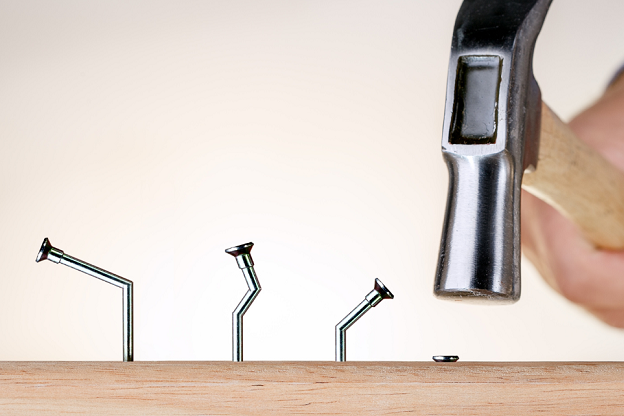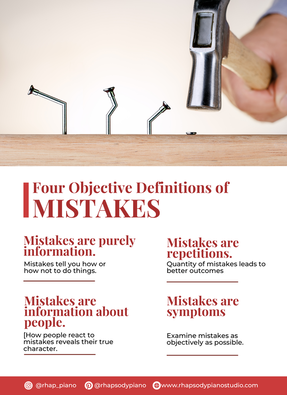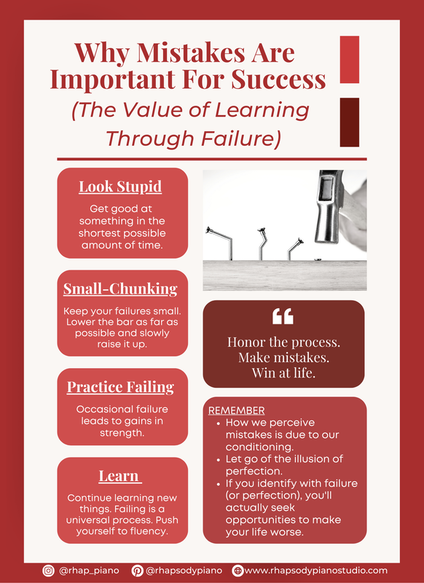|
This article contains affiliate links … If you choose to purchase, this means I receive a (very) small commission at NO EXTRA COST to you!
I've had my fair share of train-wreck performances, I remember playing passages in the wrong key or forgetting the very first note.
I've also seen colleagues engage in all types of strange rituals backstage. Pacing frantically back-and-forth, repeating mantras over-and-over again, desperately rubbing their good luck charms or facing the corner of a wall and staring blankly into space. The only thing missing was an elaborate seance over a ouija board. Stage fright causes us to act out in all sorts of weird ways and sometimes you feel like it's out of your control. Well, you can do something about it. Let me show you how. How to Overcome Your Performance AnxietyThe Root of Performance AnxietyWhat is it about stage fright that makes it feel so devastating or life-threatening? Well, from a biological perspective ... it's because it's actual fear. For the longest time, humans survived in tribes. And survival meant being part of a cohesive unit - in other words, not standing out. If you did, one of the following two scenarios would have happened:
So we feel this on a subconscious level since our "software" hasn't been updated to the modern times we live in. When we're walking up to the stage, getting ready for a job interview, or preparing for a public presentation, we get locked into this "fight or flight" mode. We imagine the crowd is "against" us. And since we can't run away, we have no choice but to prepare for battle. This is why it's so hard to get out of our comfort zone and why exhibitions feel like life or death. Modernity and Performance AnxietyWe fight against our ancestral tendencies as well as a modern disease: Perfectionism. This is also what fuels our backstage anxiety. Most students aim for a "perfect" performance, which usually means getting every single note correct. This is not only unrealistic, but a terrible goal to begin with. Because even if they succeeded, what would be the result? An accurate but boring, soulless, and robotic performance - while looking absolutely miserable on stage. Not only that, trying not to make a mistake means you actually make more of them. This has to do with the usual advice we get, which is "don't be scared" or "don't be nervous." This makes the problem worse because your mind focuses on whatever's in front of it, good or bad. Don't be scared gets translated into don't be scared. It's like trying not to think of a pink elephant. And the opposite approach doesn't work either. For example, when you're told to "be more confident." For one thing, what does that even mean? If you can't formulate an actual plan then it's just wishful thinking. And secondly, you need reference experiences. If a student has never performed before then this wishy-washy advice won't work. What's even worse is if they've had traumatic public experiences - failing miserably in front of all their peers. No amount of practice can fix this alone. You can try to give them whatever advice you want, but their brain will keep looping endlessly on these disappointments. The Blessed OnesAs if this wasn't complicated enough, mainstream advice can work for some students. But that's because they have a different set-point. Let me explain: I am in no way a naturally happy person - most of the time I'm brooding or lost in thought. Does this mean I'm depressed all the time? Not at all, it just means my happiness setpoint is lower than average. It's almost like my standards for being happy are higher (don't judge). So if you have a naturally jubilant friend who never seems to be in a bad mood, her setpoint is likely way above normal (or she's a psychopath). When these vague suggestions work, these students most likely have a higher "confidence" set-point. For example, I have at least one student who tells me she's never been nervous for a performance - even when it was her first time(!). It’s All GoodNow, one effective way to overcome stage fright is to learn the art of the reframe. Reframing is interpreting something in a different (negative or positive) way. It's like how some people have everything in life but always think "the grass is greener on the other side." This is explains why two people can look at the same situation but have completely different reactions to it. Road rage is one example - ever had someone flip you the bird for something you didn't do? So instead of avoiding fear, tell yourself it's okay to be nervous. Even better, it's good to be nervous. Doing so creates acceptance instead of resistance. It's good because it shows you care. Think about it for a second, if you weren't nervous at all then you could miss damn-near every note and not give a hoot. You would have questionable character, but not a shred of anxiety. Now, the amount of nervousness is going to differ for every student. Besides their setpoints, this is usually caused by a lack of experience. The less experience you have, the more nervous you'll feel and vice versa. As a side note, I actually believe that your nerves never go away. When you gain more experience, you just get more comfortable with the feeling of nervousness. NextThe following strategies I'm going to lay out for you are meant for the first-time performer but can be adapted for any level. Before we get into the specific plan, let's first talk about mindset - because the best advice in the world won't work if you believe you're going to fail. Earlier, I mentioned how detrimental the perfectionist mindset is. Along those lines, believing and imagining you'll be 100% successful isn't good either. Why? Because a first-time performer has no idea what's going to happen. For example, if a student has been visualizing their ideal performance going off without a hitch, what's going to happen when it doesn't go as planned? When they're confronted with an alternate reality than the one they've created, the results can be disastrous. The better approach is to expect mistakes since this is what's most likely to happen. This is to do is get them out of their heads. Bad performances occur when the students make the whole experience about themselves. It's understandable, but too self-important. This is how amateurs think, while professionals put themselves in the shoes of their audience. They obsess over how their fans are experiencing the entire event. One way to help them understand is by asking them to pay attention to what the other recitalists are doing - usually staring off into the abyss. The message I hope they hear is that everyone is just as nervous as they are. I also help them realize that the crowd actually wants them to succeed. Think about it, what kind of demonic people would want a grade-schooler to crash and burn? The PlanBy now, the student has hopefully developed a more positive attitude and expectation towards performance. Once they're fully bought-in, we can start planning and preparation. But first, an important concept: encode success. I stumbled across this idea from the book Practice Perfect. The basic gist is to make success is inevitable. But what does this mean? As I've been repeating over-and-over again, success is NOT a note-perfect performance. It's the student enjoying the process as much as possible, overcoming any setbacks or challenges, and avoiding traumatic experiences. The ultimate goal is for them to look forward to the next (every) recital. So far, the success rate is 100% (humble brag). And for this to happen, the preparation is designed to help each student succeed in the easiest possible way. One way is to pick a goal they can understand and achieve - like not giving up. They can forget notes, play the wrong rhythm, get lost in their music ... it doesn't matter as long as they make it to the last note. Mission complete. Two other ways are picking sheet music they've been playing for a long time or having them play in the program as soon as possible, since waiting too long can be stressful. Additionally, recital preparations are began as far ahead as possible - usually 3 months before their first performance. And even if it's not the student's first time playing in public, we want to do this anyway. This is because I only organize 2 recitals per year. Since there's a lot of downtime in between these events, it's necessary to plan ahead because fewer opportunities magnify the pressure they feel. As a side note, if the student has more performance opportunities throughout the year, you can sidestep a lot of these suggestions and learn through simple trial-and-error. But this concept still helps. Action
We now know that stage fright is created because of our ancient biology and perfectionist mindset.
Earlier, I mentioned another reason is that the student doesn't know what to expect. So the best way to plan for the unknown is through rehearsals. We "rehearse" what will happen for sure:
And of course I provide a healthy amount of loud, enthusiastic applause. We'll practice this sequence as much as humanly possible, until they no longer have to think about it. Why do these simple actions help? Because it gives the student a sense of control. These are the things they can accomplish no matter how their actual performance goes. This helps develop stage presence, i.e. how comfortable someone is under the spotlight. Ideally, instead of focusing on their nervousness they'll simply complete each action - like a checklist. Now once they're comfortable, I increase the challenge by recording them. Just like they say the camera adds ten pounds, this creates a heavier atmosphere. We make the rehearsals more difficult to make the actual performance easier. But let's say the student is still stressing out and putting too much pressure on themselves. In that case, I'll have them practice failing. The goal is for them to actually make mistakes. For example, if the student makes 3 errors - and I've ask for 5 - we've failed to accomplish this task. They begin to understand that mistakes are part of the process and have more fun making them. But here's the kicker: they have to practice overcoming any rough spots. The ability to get out of a tricky situation is the most important skill they'll need on stage. Lastly, I tell them that the preparation is more important than the actual result. If they've put the work in, what happens at the recital doesn't matter - at least to me. ConclusionBefore you go, I want to leave you with a few more suggestions. Piano performance isn't the only way to overcome performance anxiety - think of any public venue as an opportunity to practice. Try striking up a conversation with a complete stranger - if that sounds intimidating pretend you're asking for directions or suggestions. You can also join your local Toastmasters to practice public speaking in a supportive environment. Opportunities abound and the more experience you wrack up the more overall confidence you'll have. You'll be able to refer back to these encounters with the knowledge you've succeeded in the past and can do it again. And if you're serious about your piano practice, performance is something you must go through. What's the point of practice if you don't share your progress? That's like me writing this blog post and never publishing it. So I hope you've learned something about stage fright today, or even changed the way you approach it. Remember to set the bar as low as possible and be satisfied with any amount of progress you make at each juncture. Use what you learned today and I hope your next performance will be a great one. Happy practicing!
Did you enjoy reading this today?
Your donation helps me create free content. Every dollar goes a long way! =)
2 Comments
With 2023 just around the corner, let's talk about the yearly tradition that happens after you've drank your champagne (or cider) and sung Auld Lang Syne - resolutions.
Every January you see people posting on social media how they're going to shave off their love handles or read x number of books by year's end. And every year, those promises are broken. Why? Because the traditional thought process behind New Year's resolutions is wrong. Resolutions are year-long commitments, which is crazy! I mean, I don't always know what I'll be doing - or where I'll be - the next month. It's like Bitcoin - you have no idea what's going to happen. So what can we do instead? How to be SuccessfulSmall-Chunk SuccessWell, here's how I approach my "resolutions." First of all, I don't even like the idea of resolutions - it's like locking yourself into an unwanted contract or going on a 6-hour road trip with no pit-stops (yikes). The other reason I don't like resolutions is that there's usually no plan involved, and a goal without a plan is just a dream. So instead, I think "what projects do I want to accomplish?" By working on multiple projects, you create lasting momentum and satisfaction. You're going to have to experiment, but what works extremely well for me is dividing the year into 3-month periods - what businesses call "quarters." Within these quarters I work on several projects simultaneously or bigger ones broken down into smaller components. It's also the perfect timeframe. At the end of each 3-month period, I'm ready for reflection. If things are going good, I'll keep most of my plans in place for the next quarter. However, sometimes I'll change course entirely. It's about giving yourself options. To enjoy your work as much as possible, one way is to feel in control. To feel in control, give yourself plenty of choices. So if I'm not feeling good about the work I'm doing, I have no problem with changing my mind on a whim. Measure SuccessAdditionally, you'll want to track your time because it will give you vital information. I do this every:
When you review on a weekly basis, it keeps you focused. For example, I'll look back at a certain week and notice I've fallen behind on my time spent on certain activities. Maybe I had too many cocktails or screen-time (pick your poison). Maybe I had obligations, like going to the doctor's office or taking my pups to see their vet. Either way, the weekly reflection keeps me on track. Monthly and yearly reviews are just as important because it's like having different "vantage" points. For instance, feel the difference in perspective:
You see the big picture (monthly, yearly) as well as the details (weekly). Now, over a longer period of time you'll notice patterns. Since I have records dating back to 2015, I can see how my work habits have changed.
From 2017-2018, you can see I increased "work" hours (focus on $$$) while decreasing time spent on learning ?
Not only that, it helps me plan for the next year. For example, I notice I spend a lot more time on tasks, other than teaching, in December. When I look at my calendar, I can see it's because a lot of students are taking time off before the new year.
Because of this, I know exactly what I want to do when winter arrives. Expectation creates productivity. Vaya Con DiosWe look to the past in order to have a successful future. This is the reason why we study history - not only to learn new lessons, but to see how errors repeat themselves (ever read about the Spanish Flu?). By planning your future, you'll avoid making the same mistakes. This is something the most successful people do - you'll overhear them talking about their next decade (instead of their next vacation). If you did this, imagine the story you could write for yourself. When all is said and done, what do you want your history to say? I wish nothing but the best for you in 2023 and hope this post gets you started the right way. Happy practicing and Happy New Year!
Did you enjoy reading this today?
Your donation helps me create free content. Every dollar goes a long way! =)
This article contains affiliate links. If you choose to purchase, this means I receive a (very) small commission at NO EXTRA COST to you!
Learning from Mistakes
If you're a first-generation Asian American, you probably know the sheer terror of bringing home a school assignment with ... AN A MINUS!!!
You most likely had parents like mine, people who demanded "perfection" and ruthlessly punished you for any "mistakes." Although I appreciate what my parents have done for me my whole life, on this point they were completely wrong - and so is society for that matter. "Tiger parents" - and, unfortunately, many teachers - don't realize mistakes are not something to be avoided, they're necessary for success. It's a crucial step you cannot skip. Don't get me wrong, movies where the character is invincible can be kinda fun, but there's not much to root for - who can relate to a character that has no flaws? A cardinal rule of storytelling is that the hero must have some type of flaw to make them relatable. This is why I always preferred Batman to Superman. So today, let's dig in and find out what mistakes really are all about and how to use them for your benefit. Why We Don't Learn From Mistakes
What do you think of mistakes? The answer most likely has to do with how you were raised. How you were conditioned.
For example, how a teacher views mistakes will be how their student views mistakes. For this reason, you might simply be parroting the opinions and views of everyone else. And we don't question or challenge these beliefs because we humans are tribal by nature - most of the time, we want to do our best to fit in. So we'll believe what the "group" believes because isolation is too painful. But don't blame yourself for this, most of this conditioning happens before we even hit puberty. Since we're so highly impressionable at that age, things we're taught can have an almost permanent effect on the rest of our life. But the good news is that there's a way out. Let's take a look at different ways conditioning happens, as well as how to break free of this unwanted programming. Pitch Perfect
Our modern world has taken the idea of "perfectionism" past any healthy point. Ironically, it's been made worse because the quality of workmanship has gone up.
The first time you see any product, you're presented with a perfected, finished version. But behind the curtain, there are hundreds of iterations and thousands of hours of tinkering that you'll never see. There's a similar problem in that most professionals make everything look easy. Because it looks easy for them, people don't understand the hard work it took to make it look that way. You don't see the countless hours of practice and rehearsals that go into maybe 60 minutes worth of music. This type of preparation makes an artist a craftsman more than a perfectionist. Perfection is a trap, an illusion. It's like avoiding mistakes. Not making mistakes is like wanting to have everything handed to you. The problem with this is that you need to "earn" success. Let's take money, for example. You've definitely heard of story after story of rich kids who end up living miserable lives or becoming despicable persons. And it's because the money gets handed to them without them having to lift a single finger. There's no skin in the game for them. Personally, I've always been suspicious of "perfect" people. I've never found them likeable or even authentic. Do you trust a battle general with no scars? And most pianists aren't "perfectionists" anyways, at least the normal ones (if there's such a thing). A famous pianist once said they couldn't truly let go and perform to their potential until they made their first mistake in a live concert. When it comes to piano performance, perfection creates a dull experience. You have a well-polished, accurate presentation devoid of any soul. We can look to public speaking as another example. For instance, I've seen speeches that are so focused on perfect pronunciation, tonality and delivery that it all comes out a little too ... rehearsed. Isn't it ironic? I much prefer a talk with more "uhms" and "ahs." In fact, I've even heard of polished public speakers inserting these guffaws on purpose to make themselves sound more authentic! Perfect is boring. Imperfection is powerful. Survey Says ...
Nowhere is this "perfection" more rampant than the sports we watch. A team can lose while doing all the right things.
And the "winners" are sometimes unduly praised even if they were just lucky. People hate this idea of luck, there always has to be some sort of explanation. Annie Duke, a former world-champion poker player turned author, calls this "resulting." The following is an example from her book, "Thinking in Bets." If you're a football fan, you definitely remember the "disastrous" play call that cost the Seattle Seahawks a big, shiny Super Bowl ring against the New England Patriots. But Duke says it was the right call. Like, do you really think a seasoned NFL football coach doesn't know what he's doing? In a Super Bowl game? She argues that Seattle head coach Pete Carroll called the correct play with the highest statistical chance of winning. 9 out of 10 times, that same play would work - and everyone would be talking about his craftiness or genius. Carroll did the right things and was only punished because he lost. Resulting is like trying to rob a bank to make money. Morals aside, it can be considered a smart approach, and if successful you end up with a lot of shekels in the shortest amount of time possible. But this is an example of having the wrong process and getting good results. It's dangerous because you can be building a house of cards until one day it comes crashing down. And this is also why success is a double-edged sword. The higher up the ladder people climb, the more "yes" men they are susceptible to. They start drinking their own Kool-Aid and forget what got them there: Listening to critical feedback. In any case, the means with which you achieve your goals matters. In other words, results-thinking takes you away from the (correct) process. So if you've ever done the right thing, and had a bad result, I know where you're coming! I Think, Therefore I ...
Since the beginning of time, people have been concerned with image and status.
At an individual level, we're concerned with identity. Just as a person identifies with being perfect, we can also identify with failure. And it's more insidious than that. We don't just experience failure, it's like we become failure. If you identify with being a failure, you'll actually seek out opportunities to make your life worse. This is where so-called "success barriers" come from. What happens is you'll have some amazing opportunities come your way and you won't even take them. Why? Because succeeding would mean you're not you anymore. This explains why we're so resistant to change - even if it would be a good outcome for us. But this has more to do with what we tell ourselves - identity is what we repeatedly say we are. Whoever you believe yourself to be, you will unconsciously take actions to prove it. So whatever actions you take, make sure they're aligned with how you want to see yourself - each action is a vote for your future self. Roots
Now, let's look at this from a biological perspective.
As James Clear says in his book, Atomic Habits. "Your habits are modern-day solutions to ancient desires." In other words, we have outdated software. Let's take a look at some modern examples to explain this. Life or Death
Question: Why exactly does failure (at first) feel so damn scary?
Answer: Because failing in prehistoric times meant death. When you're walking up to a grand piano to play your recital piece, your primal brain is imagining coming face-to-face with a tiger that's about to consume you. This explains why public performances can feel like a life-or-death experience. But if you don't allow yourself to fail, here's the problem: it's going to happen sooner or later. For example, take forest fires. By preventing smaller forest fires from happening, it eventually transforms into a gigantic, uncontrollable blaze. Little mistakes help prevent bigger ones. And unlike our ancestors, we don't die if we make them. If you don't allow this to happen, you're setting yourself up for a huge disaster later in life. I once had a client who asked me for some career advice. She was questioning her work life and my guess is that she noticed how much I enjoyed being my own boss. We ended up having a conversation over coffee. It was a good talk and she made a plan to seek other job opportunities. Now ... she was rejected from her very first job application. I wanted to have faith in her, but I knew she was in trouble when she said: "I didn't get the job, but I'm happy because I experienced my first failure." First failure? As a grown adult? When you say something like that, the writing's on the wall - for some people change is just too hard (especially when they're older). Eventually, she just pretended we never had that conversation and our relationship quickly soured. Denial can be scary. He Who Casts The First Stone
Let me introduce you to fear of failure's twin brother: Fear of judgment.
Why are we so afraid of being judged? Let's circle back to the theme of tribe. For hundreds of millennia, we survived by being part of a group . Today, it sucks to be ostracized at school - or even worse, bullied. But that pales in comparison to back then. Once you got kicked out of your tribe, there was nothing to protect you from the dangers of mother nature. Isolation equaled death. This also explains the existence of people who NEVER apologize. Yes, some people are arrogant and have too much ego, but I venture to guess that most of them are actually just scared of being judged. I've had more than my fair share of clients like this - they ALWAYS have a convenient excuse ready. For example, forgetting to come to the lesson becomes a scheduling problem. Not paying the student's tuition on time means they must have not received the invoice. But it's important to not take any of this personally - or seriously. These people just haven't done enough self-examination to understand they're being run by these unconscious processes. To them, it must feel like some sinister force is in charge of their life. Again, denial is a scary thing It Hurts So Good
When you add all of this together, it explains why anything negative feels 10x worse than anything positive.
Seriously, you can have 10 successes in a row but ONE failure can make you miserable. For instance, try this as a mental exercise: Imagine becoming a millionaire. Now ... imagine that you first became a billionaire, and then lost so much money that all you were left with was a million dollars. You have the same amount of money, but does it feel the same? I think not. Going from 0 to a million dollars feels way better than losing yourself to the same amount. Let's go back to childhood. What happens is we have a few "failures" early on in life. Since we're so young, the effects can be quite traumatic. And if you have adults that pile on you, this compounds and magnifies those terrible feelings. You end up going through your entire life subtly (or not so subtly) haunted by less than a handful of these instances. We create a narrative based on these few experiences and keep telling ourselves this story until we grow up into adults. Write a better story for yourself. Onwards
So we've covered a lot of ground. We've examined the way society conditions us to view mistakes, as well as using biology and evolution to explain all that other stuff underneath the surface.
But instead of accepting all of this at face value, let's come up with our own more productive and useful definitions of mistakes. #1
First, let's define mistakes as purely information. They simply tell you how or how not to do things - which is why it's so detrimental to punish people for mistakes.
In terms of learning, mistakes just mean you need more experience and knowledge. Then again, if you're not making enough mistakes, it's a sign to challenge yourself more. For example, when one of my students is not making enough errors, it means they're a a bit too comfortable with the music. #2
Mistakes are also information about people. For instance, I believe how a person reacts to a blunder reveals everything about their character.
Personally, I love when this happens because I believe you don't truly understand a person until you both experience conflict. I've had instances where I thought I had great relationships with clients - sometimes for years - until I'm proven wrong. #3
Another way to define mistakes are symptoms of a bigger problem. I love seeing things this way because you realize mistakes are not the actual issue - so you don't make a big deal out of them.
Can you imagine a doctor getting "angry" at your symptoms? In your own dealings with people, this is why it's important to never shoot the messenger. Don't punish people for bringing you, supposedly, bad news. The worst thing you can do is immediately rush to judgment and assume they were neglectful. You might say something like, "why in the world did you do that?" But if you come off as accusatory, I guarantee you won't get the real facts from them. If you have an emotional reaction, you'll get an emotional response. So instead of "why did you do that?" ask them "what caused this to happen?" That way, both of you can now look at the problem objectively. She or he won't feel attacked or criticized and you both become collaborators trying to solve it together. #4
Lastly, mistakes are merely repetitions. And what are repetitions?
Learning. Imagine mistakes are like the iPhone. As someone who thought a beeper was the epitome of instant technological communication, it's amazing to to see how many models the original iPhone has gone through - and is still going through. Seriously, we're going to have iPhone 1000-X-F-P-J-T one day. The reason why products like these have come so far - and so soon - is that technology has allowed them to drastically increase the amount of repetitions (a.k.a. failures) through experimentation. Just in case you're not convinced, let's look at Atomic Habits, again: In the book, Clear presents a study where two groups were pitted against each other. The first group was told to create one perfect drawing to present at the end of - let's say - 30 days. The second group was told to create as many drawings as possible within that same period. You can guess what happened. The "repetition" group outperformed the other group by a landslide (it wasn't even close). Quantity of mistakes leads to better outcomes. By allowing yourself to make mistakes early and often, you radically increase your rate of learning. A List of "Failures"
Before we end this section, I present to you the following list of historical "mistakes"
(source: https://www.concordia.edu/blog/9-successful-inventions-made-byaccident.html)
Tools
In this last section, I'll share a few of my favorite tips. Some are tactics that you can use right away, while others are concepts to think about or mindsets to adapt for the long term.
Look Stupid
Now, this first suggestion is not for the faint of heart. I just wanted to throw this one in here because, in my opinion, it's the best way - and admittedly the most intimidating way - to get good at something in the shortest possible amount of time possible.
Here's an example from Scott Young's book Ultralearning. In chapter 3, Young talks about how his friend - Tristan de Montebello - became a world class public speaker. Montebello ended up placing in the top ten at a world public speaking championship. And he did this in less than 7 months! Even harder to believe is that he had ZERO public speaking experience (he was a musician). How did he do this? Well, besides totally immersing himself in the art of public speaking (reading, attending workshops, etc.) the most useful thing Montebello did was to place himself in intense, public environments. He would speak everywhere he had an opportunity. Conferences, Toastmasters' workshops, elementary schools and many other venues. I personally find that last one the most intimidating - if you know anything about kids, you know how brutally honest they can be. In short, he achieved this remarkable feat of becoming a world-class public speaker because he wasn't afraid to look stupid. By putting yourself into these so-called wicked learning environments, it's like progress on steroids. And since it's an environment where mistakes and failures are expected, you also desensitize yourself in the quickest way possible. In short, this method provides you with the most realistic feedback at an incredible pace. The only thing is finding out how much of that feedback is useful (which I'll cover in a future article). Here's another example: When he was getting ready for a huge TV special, Chris Rock (sucks to be slapped) would tour nearly every comedy club in the U.S. What was he doing at these clubs? Testing out his jokes - he'd even carry a notepad and pen while he was on stage. He was figuring out which jokes worked and which ones needed work. In other words, some jokes would be successful and other ones would completely bomb. And a year or so later, you'd miraculously see the finished product - an HBO special (or something similar). Here's one last example: As an avid language learner, I love watching YouTube channels of "polyglots" (people who speak more than 2 languages). And they also didn't care one about iota of public humiliation. With a bare minimum of self-study, they just jump into the fire - without care for proper grammar or pronunciation. And because of this, they make rapid progress. I remember a version of this when I was in college. We'd have weekly "piano forums" where we'd perform in front of our colleagues. Even if the pieces were in rough shape, we were still expected to play. It was a great way to do a public test run to get the most useful feedback possible - from a live audience of your colleagues (talk about pressure). So if you're courageous enough, this is absolutely my #1 tip. Congratulations, You've Failed!
I came across this next one from Seth Godin's The Practice.
Godin is an avid juggler. If you're learning juggling for the first time, he offers this advice:
In other words, practice failing. This is a surefire way to get over the fear of failure - and unlike the previous strategy, you can do this in private. Companies and businesses do this as well (the smart ones). Savvy owners will hire programmers to purposely bring their website down. If they don't do this in the beginning, when their business is finally up and running, a website crash can translate into thousands - if not millions - of dollars down the drain. This principle of failing is something gym rats also know very well. They understand that (occasional) failure leads to gains in strength. By doing enough reps until they can't possibly lift anymore, their muscles become stronger. In my own private lessons, this could be asking my students to purposely make mistakes while they're playing. Who knew rewarding students for failure could be so much fun? Like the saying goes, "fail fast, fail often." Bottom-Up
How do you eat an elephant? One bite at a time (but don't actually eat an elephant please).
Now, if the previous 2 strategies are too intimidating, here's a more user-friendly method:
The underlying concept is the "Goldilocks" rule - not too difficult, not too easy, but "just right." So lower the bar as far as possible and slowly raise it up. Here's an example of this is how use this to prep my private students for piano recitals:
Now, you might think this is overkill but understand that I usually do 2, maybe 3, recitals a year. When you don't have enough performances, the tendency is to put way too much pressure on each one. By doing it this way instead, I'm creating a public environment where they small-chunk their way to success. So whatever challenge or project you're dealing with, think about the smallest chunk - the smallest unit of success. Remember, it took Thomas Edison 10,000 tries to create the lightbulb. And it's not like he was betting the farm each and every time. Charlotte's Web
Here's one last bonus tip before we wrap things up.
I believe a big reason why people are afraid to fail or make mistakes is that they've stopped learning new things. If they were to pick up a new hobby, they'd realize that failing is a universal process. For example, here's how it felt when I started studying languages:
Of course, I plan to push myself towards fluency, and I expect many more ups and downs on the way. But the most important thing I learned from doing this is that the process was exactly the same as piano. And even more rewarding is that I was able to learn concepts and strategies from language acquisition and apply them to piano practice, performance and teaching. The process always wins in the end. Go Forth And Fail!
Click I've been a "failure" pretty much my entire life.
I've failed at teaching. I've failed numerous competitions. I've failed at making friends. And admittedly, this is something that haunted me my first few decades on this planet. But over time, I realized every successful person has failed. Instead of demotivating me, it gave me hope. Remember that:
Mistakes will never go away - that is, if you continue to strive and push yourself to greater heights. But I promise you that if your focus is mastery, you will eventually reach a level where things become easy. Then the cycle repeats. You'll feel like a beginner once more. You'll stumble and think, "I have to go through this again?" YES. To want it any other way is to run away from the truth. Honor the process. Make mistakes. Then win at life. Happy practicing!
Did you enjoy reading this today?
Your donation helps me create free content. Every dollar goes a long way! =)
How To Get Motivated Pt 1
The first of this 2-part blog post deals with the wrong type of motivation. In the next post I’ll go deeper into the 2 types of motivation and how to use them the right way.

I’m going to begin today’s post with another college experience.
[Disclaimer: I do remember some great things about school, mainly the camaraderie and available educational resources but the negative experiences I had far outweighed the benefits. I chalk it up as being in the wrong school and not the school environment in general. I don’t want to make it seem as though I’m against the school system. Any good system can be broken.] I specifically remember the first class I took with the chair of the department. This was a class where we would be presenting every week. In general, he had been fairly warm to the students who had presented. So when it came to my turn I was nervous but fairly confident. Outside of class I also felt like we had a pretty decent rapport developing. How NOT To Get Motivated
My presentation came as a shock; I was caught off guard. He relentlessly peppered me with questions, often viciously pointing out the most minor, trivial details.
I had no idea what was going on. I literally began to think he hated my guts. After my presentation was over (I didn’t even get through halfway) I felt crushed. Destroyed, humiliated. Later, a fellow student (already years into his degree and more experienced than me) could tell how bothered I was. So I was grateful to him when he took me aside and said it was the teacher’s way of showing he actually thought you had potential. He was basically tough on “good” students and very lenient and kind to “bad” students. But this revelation didn’t make me feel any better. The only question that kept recurring in my mind was, “who on this green planet would feel motivated this way?” That was the PG-rated question. There is a HUGE problem with this type of motivation. Not everyone likes it, especially me. More often than not, people hate it. [Actually, that’s not entirely true. On a football field? Probably. A class in front of my academic peers? Heck no.] Treating another human being like this is utterly ridiculous and detrimental. How do you expect your brightest employees or students to work hard for you when you demean and embarrass them? Not all of us are masochists. So I wasn’t “pumped” or “excited” to ace my next presentation. I was more tempted to see how fast I could make his head bounce off the wall. Motivator? He was more like Dr. Jekyll and Mr. Hyde. Later that semester I saw him “motivate” another student the same way. The poor girl took it far worse than I did. In the back of my mind I sarcastically thought, “another student with ‘potential’ eh?” De-motivation at its finest. Unfortunately, this was a big factor that went into my decision to quit school. Did I really want to deal with this guy for the next few years? Not to mention he was in charge of the entire department! And if you’re in a similar situation, please don’t let monetary compensation or educational achievement be the end-all. I remember being hired for a group piano class with pretty good pay. Afterwards I quickly realized the coordinator who hired me was the same type of “motivator.” I happily quit after a month. No amount of money or award is worth feeling that miserable. You can’t treat people all the same because EVERYONE IS DIFFERENT. Every student is unique. In my piano studio I can’t teach everyone the same way. It just doesn’t work and it’s the same with motivation. So how do we motivate the “right” way? Read How to Have Infinite Motivation: Part II here.
Did you enjoy reading this today?
More from Rhapsody Piano Studio…..
Your donation helps me create free content. Every dollar goes a long way! =)
|
Categories
All
|











